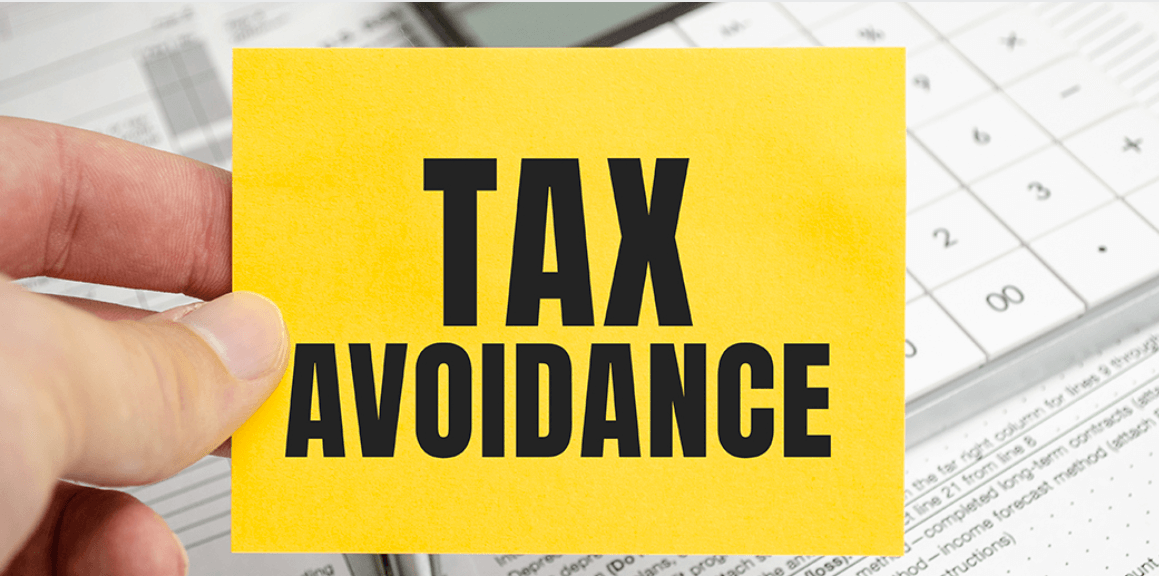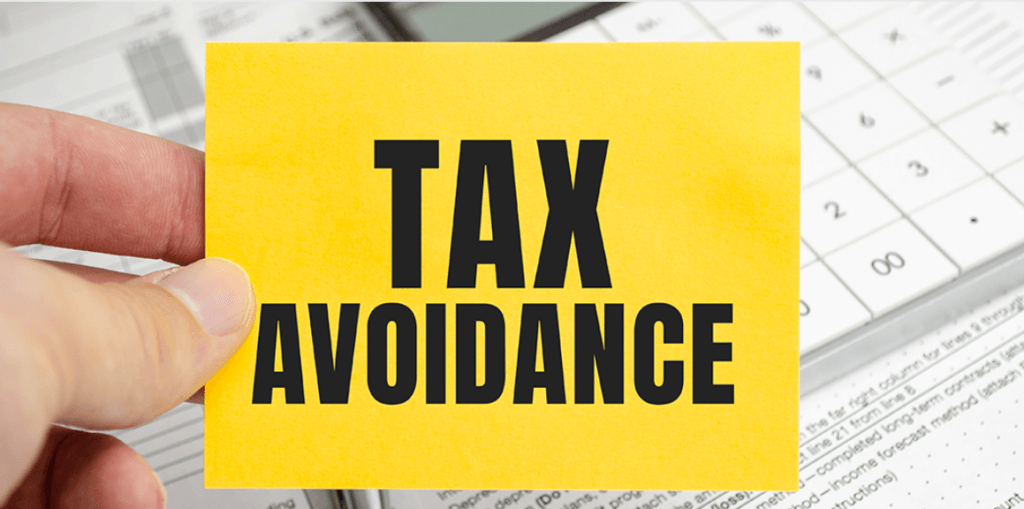Welcome to a journey of financial empowerment as we delve into the intricacies of smart tax planning in our comprehensive guide on “How to Avoid Paying Taxes.” In this dynamic landscape, understanding legal and strategic approaches is paramount. We aim to demystify the complexities, providing you with actionable insights to optimize your tax situation. From exploring deductions and credits to leveraging tax-advantaged accounts, we’ll navigate the realm of legitimate strategies that empower you to keep more of your hard-earned money. This guide is not about evading taxes but about mastering the art of tax optimization within the bounds of the law.
Join us as we unlock the doors to financial freedom, offering you the knowledge and tools to make informed decisions and build a robust financial future. It’s time to take control of your finances and discover the pathways to a smarter, more tax-efficient financial journey on how to avoid paying taxes.
The Foundations of Strategic Tax Planning
Understanding the foundational principles of strategic tax planning is crucial for individuals seeking to optimize their financial outcomes. We will delve into the importance of proactive planning, the distinction between tax avoidance and evasion, and the ethical considerations that should guide your approach to minimizing tax liabilities.
Leveraging Tax Deductions and Credits
A deep dive into the world of tax deductions and credits reveals a myriad of opportunities for optimizing your tax situation on how to avoid paying taxes. Learn how to identify, maximize, and strategically apply deductions and credits to significantly reduce your taxable income, keeping more money in your pocket.
Unraveling Tax-Advantaged Accounts
Explore the benefits of tax-advantaged accounts, including 401(k)s, IRAs, and HSAs. This chapter will guide you through the intricacies of contributing to these accounts, providing not only financial security for the future but also immediate tax advantages.
Mastering the Qualified Business Income Deduction (QBI)
Thinking of How To Avoid Paying Taxes? Here is your answer.
For entrepreneurs and business owners, the Qualified Business Income Deduction (QBI) can be a game-changer. Delve into the details of this provision introduced in recent tax reforms, discovering how it can lead to substantial tax savings for eligible businesses.
Strategic Investment Planning for Tax Efficiency on How To Avoid Paying Taxes
The realm of tax-efficient investing offers a multitude of strategies to minimize tax implications on your investments. From holding assets for the long term to exploring tax-loss harvesting, this chapter provides insights into optimizing your investment portfolio while reducing tax liabilities.
Charitable Giving as a Tax Optimization Strategy
Philanthropy meets financial planning in this exploration of how charitable contributions can make a positive impact on society while also resulting in valuable tax deductions. Discover how strategic giving aligns with your financial goals.
Estate Planning for Tax Reduction
Strategic estate planning goes beyond asset transfer—it can significantly reduce tax liabilities for future generations. Learn about tools such as the gift tax exclusion and trusts, exploring ways to facilitate the transfer of assets while minimizing potential estate taxes.
Advantages and Disadvantages of Strategies to Minimize Tax Liabilities
Strategic tax planning is a legitimate and essential aspect of financial management that individuals and businesses undertake to minimize their tax liabilities. While it offers numerous advantages, there are also potential disadvantages and ethical considerations associated with various tax avoidance strategies.
Advantages On How To Avoid Paying Taxes:
1.Financial Savings:
One of the primary advantages of strategic tax planning is the potential for substantial financial savings. By leveraging deductions, credits, and tax-advantaged accounts, individuals and businesses can legally reduce their taxable income, leading to lower overall tax obligations.
2.Wealth Accumulation:
Effective tax planning allows for increased wealth accumulation. By minimizing tax liabilities, individuals can redirect saved funds towards investments, savings, or other wealth-building endeavors, fostering financial growth.
3.Investment Opportunities:
Tax-efficient investment strategies enable individuals to make informed choices that align with their financial goals. Capital gains and losses can be strategically managed to optimize after-tax returns on investments.
4.Retirement Planning:
Contributions to tax-advantaged retirement accounts, such as 401(k)s and IRAs, not only reduce current taxable income but also contribute to long-term financial security. Individuals can benefit from compounding growth and tax-deferred investment returns.
5.Business Growth:
For businesses, utilizing deductions related to business expenses, depreciation, and the Qualified Business Income Deduction (QBI) can enhance cash flow, facilitate expansion, and promote overall business growth.
6.Estate Preservation:
Strategic estate planning helps minimize potential estate taxes, ensuring that more assets are preserved and passed on to heirs. Tools like trusts and the gift tax exclusion can be employed for effective wealth transfer.
7.Philanthropy:
Charitable giving not only benefits society but also provides tax advantages. Donations to qualified charitable organizations can result in valuable deductions, encouraging philanthropic activities.
Disadvantages On How To Avoid Paying Taxes:
1.Ethical Concerns:
One of the primary disadvantages associated with tax avoidance strategies is the ethical dilemma. While legal, certain methods may be perceived as exploiting loopholes or circumventing the spirit of tax laws, raising questions about the moral implications of such practices.
2.Complexity and Compliance:
The tax code is intricate, and navigating it requires a deep understanding of laws and regulations. Individuals may find it challenging to stay compliant with ever-evolving tax laws, leading to potential legal complications.
3.Audit Risk:
Aggressive tax planning may increase the likelihood of audits by tax authorities. While legal, certain strategies may draw scrutiny, and individuals or businesses employing such methods may face additional scrutiny.
4.Potential Changes in Legislation:
Tax laws are subject to change. Strategies that are currently legal may become obsolete or undergo modifications with new legislative initiatives. This uncertainty poses a risk to individuals and businesses relying heavily on specific tax planning approaches.
5.Public Perception:
Individuals or corporations engaging in aggressive tax planning may face public scrutiny. Instances of high-profile entities minimizing their tax obligations have garnered public attention, leading to reputational risks.
6.Limited Applicability:
Some tax strategies may not be applicable to everyone. Certain deductions or credits have eligibility criteria, and not all individuals or businesses may qualify, limiting the broad application of certain tax planning methods.
7.Short-Term vs. Long-Term Gains:
Tax planning strategies should align with long-term financial goals. Some approaches may provide immediate benefits but could have adverse consequences in the long run. It’s crucial to balance short-term gains with sustainable, long-term financial planning.
The information provided here focuses on legal tools and strategies used for tax planning and optimization:
Tax-Advantaged Accounts:
Individual Retirement Accounts (IRAs): Contributions to traditional IRAs are tax-deductible, and earnings grow tax-deferred until withdrawal.
401(k) and 403(b) Plans: Employer-sponsored retirement plans allow employees to contribute pre-tax dollars, reducing their taxable income.
Dependent Care Flexible Spending Accounts (FSAs) and Health Savings Accounts (HSAs):
FSAs: Employees can contribute pre-tax dollars to FSAs to cover eligible dependent care expenses.
HSAs: Contributions to HSAs are tax-deductible, and withdrawals for qualified medical expenses are tax-free.
Tax Credits:
Child Tax Credit: Provides a credit for each qualifying child, reducing the overall tax liability.
Earned Income Tax Credit (EITC): A benefit for low to moderate-income individuals and families.
Deductions:
Mortgage Interest Deduction: Homeowners can deduct interest paid on their mortgages.
Charitable Deductions: Contributions to qualified charitable organizations are deductible.
Qualified Business Income (QBI) Deduction:
Business owners may be eligible for a deduction of up to 20% of their qualified business income, subject to certain limitations.
Tax-Efficient Investments:
Long-Term Capital Gains: Holding investments for more than one year may qualify for lower capital gains tax rates.
Tax-Loss Harvesting: Offsetting gains with losses to minimize overall tax liability.
Estate Planning Strategies:
Gift Tax Exclusion: Individuals can gift a certain amount each year without incurring gift taxes.
Establishing Trusts: Certain trusts can be used to minimize estate taxes.
Business Expenses and Depreciation On How To Avoid Paying Taxes:
Business Expense Deductions: Business owners can deduct legitimate business expenses.
Depreciation: Depreciating the value of assets over time can reduce taxable income.
Tax Deferral:
1031 Exchanges: Used in real estate, allows the deferral of capital gains taxes when selling and buying similar properties.
Tax-Advantaged Investments on How To Avoid Paying Taxes:
Municipal Bonds: Interest earned on municipal bonds is often tax-free.
529 Plans: Earnings in these education savings plans are tax-free when used for qualified education expenses.
In conclusion, this guide equips you with the knowledge and tools to navigate the complexities of tax planning on how to avoid paying taxes. Remember, the goal is not to evade taxes but to strategically optimize your financial situation within the bounds of the law. Empower yourself to make informed decisions and embark on a journey toward financial freedom.
Thanks for reading from Adhunu
Check out our other blogs
Mastering Financial Serenity: The Ultimate Guide to No-Risk Investments
Smart Moves: Unveiling the Secrets of Good Short-Term Investments
Quick Wins: Your Guide to Short-Term Savings Success
FAQ
A1: Yes, legal tax planning involves strategic approaches to minimize tax liabilities within the bounds of the law.
A2:Tax deductions reduce taxable income, while tax credits directly reduce the amount of tax owed. Both are valuable tools in strategic tax planning.
A3: Mismanagement of accounts like HSAs and FSAs can lead to missed opportunities for tax savings and may have financial consequences
A4:Small business owners can benefit by exploring business expense deductions, understanding the QBI deduction, and adopting tax-efficient investment strategies.
A5: Ethical tax planning involves complying with tax laws, avoiding evasion, and utilizing legal avenues to minimize tax liabilities.






